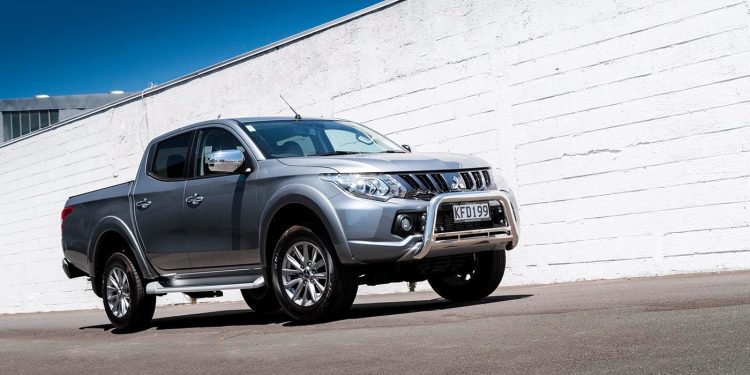Mitsubishi facing class action lawsuit in Australia over fuel economy
Words: Matthew Hansen
Mitsubishi looks set to be the latest marque to be hit with a class action lawsuit in Australia, with groups alleging the brand advertised one of its models, the Triton, with misleading fuel economy claims for models sold between 2016 and 2018.
The action against Mitsubishi Australia comes via Bannister Law Class Action. It follows a curious case from earlier this year in May, when the Victorian Supreme Court mandated fuel-rating labels for cars sold new in Australia over the last 20 years.
“A law firm has commenced legal proceedings against Mitsubishi Motors Australia in relation to the fuel consumption testing and labelling of Triton vehicles with (model) years from 2016 to 2018,” reads a statement issued by Mitsubishi Motors Australia.
“Mitsubishi Motors believes the case is without foundation, and will respond accordingly. Importantly, Mitsubishi Motors has full confidence in the accuracy of its fuel consumption testing, which is conducted in an accredited laboratory.
“There are very specific government regulations that mandate how this testing is undertaken and how the result is displayed on the fuel consumption label of all new vehicles, with which Mitsubishi fully complies.
“As this is a legal matter, it is not appropriate to comment any further at this stage.”
Should the lawsuit be successful, it will create a very curious legal precedent, where anyone with a car that doesn’t meet the fuel economy claims on its attached label will be able to take legal action.
The Triton has been the subject of several investigations over fuel economy. Australian outlet Drive cites the case of a Triton owner who successfully got a refund for their ute via the consumer tribunal after complaining that they weren’t able to replicate Mitsubishi’s economy claims for the vehicle.
In that case the owner, Zelko Begovic, kept a thorough record of his Triton’s fuel economy. A Mitsubishi technician and independent fuel economy expert were drafted to try and achieve the vehicle’s advertised economy numbers, but neither were successful.
The Victorian Supreme Court eventually awarded Begovic a refund, citing that Mitsubishi’s economy claims were “misleading and deceptive”.
What makes such a precedent interesting is that it’s common knowledge that most manufacturers’ reported fuel economy claims are achieved in best-condition scenarios, making them typically very difficult to achieve in any real-world driving.





